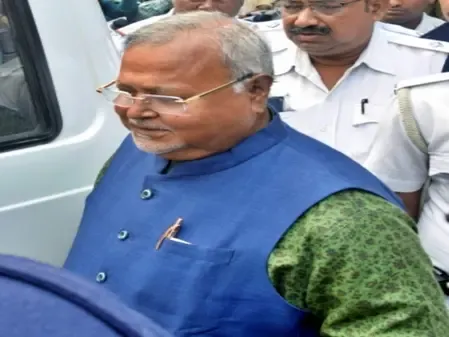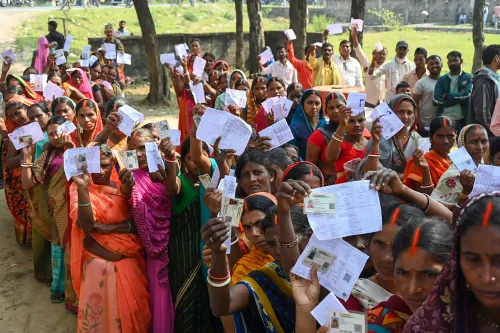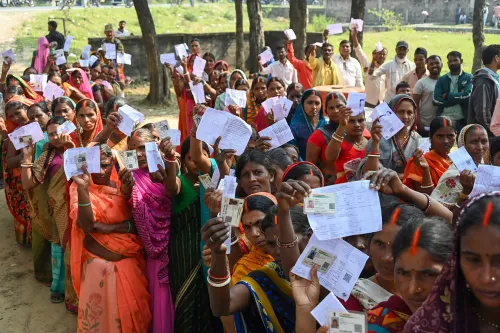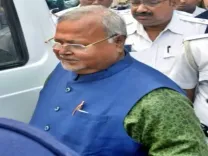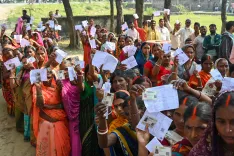North Eastern Tea Association Calls for Oil Palm Planting in Assam
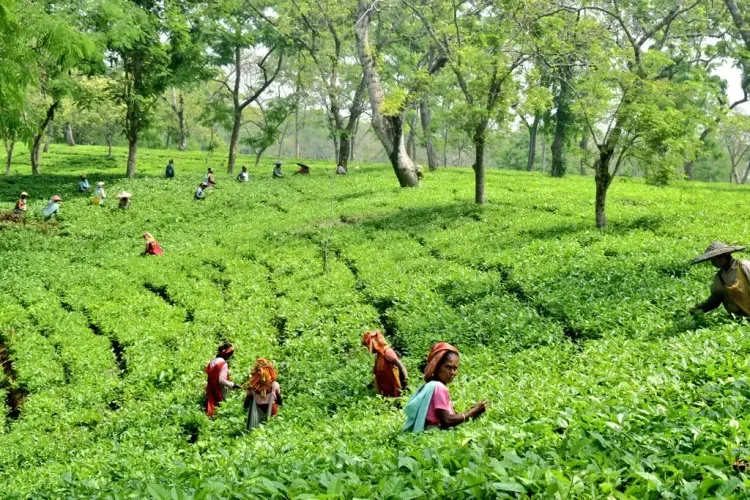
Synopsis
Key Takeaways
- The NMEO-OP scheme aims to support oil palm cultivation in Assam's tea gardens.
- NETA stresses the need for significant investment for oil palm cultivation.
- Integration of tea and oil palm is deemed beneficial.
- Assam government has allowed using 5% of tea garden land for cash crops.
- India is the largest importer of edible oils globally.
Guwahati, April 3 (NationPress) The prominent tea producers' organization, the North Eastern Tea Association (NETA), has formally requested both the Central and state authorities to expand the National Mission on Edible Oils – Oil Palm (NMEO-OP) initiative to include the tea estates of Assam for the purpose of cultivating oil palm trees.
According to NETA adviser Bidyananda Barkakoty, the Union Ministry of Agriculture and Farmers Welfare has acknowledged a request in a letter dated April 1, permitting the NMEO-OP scheme for the cultivation of oil palm trees on five percent of the land within Assam's tea gardens.
The operational guidelines for the NMEO-OP initiative were issued by the Central government in April 2022, allowing for assistance until 2025-26, Barkakoty informed the press.
Barkakoty highlighted that tea estates in Assam have been unable to benefit from the scheme due to issues surrounding land classification and specific conditions outlined in the guidelines.
As a result, NETA has appealed to both the Central and Assam governments to broaden the NMEO-OP scheme to encompass tea gardens.
In its correspondence, NETA noted that cultivating oil palm necessitates significant capital investment for planting, irrigation, and maintenance during the initial four-year non-harvesting period.
Following NETA's appeal, the Union Ministry of Agriculture and Farmers Welfare has responded favorably, communicating with the Assam government’s Agriculture department to increase support for growing oil palm trees on five percent of tea garden land.
According to Barkakoty, NETA has conducted an internal study indicating that tea and oil palm can be cultivated synergistically.
“The study also indicated that integrating the cultivation of agar trees, oil palm trees, and other cash crops on five percent of tea garden land is crucial to address the economic difficulties currently confronting the tea sector,” he stated.
On October 14, 2022, the Assam government issued a Gazette notification permitting the use of five percent of total tea garden land for designated purposes, including cash crops.
Furthermore, on January 10 of this year, the Assam cabinet sanctioned the classification of oil palm as a cash crop within the state.
Additionally, the West Bengal government, via a Gazette notification on February 11, has allowed the use of 15 percent of tea garden land for specific purposes as detailed in the notification.
The benefits under the NMEO-OP cover planting material, management during the gestation period (four years), intercropping inputs, land preparation, bio-fencing, drip irrigation, bore well/pump set/water harvesting structure/vermi compost unit, and harvesting tools. There is also a tailored package for the northeastern states.
Barkakoty emphasized that India heavily relies on imports to satisfy its edible oil needs, making it the largest importer of edible oils globally. Hence, the NMEO-OP scheme was initiated to boost domestic edible oilseed production and availability while decreasing the import burden of edible oils.
The 44-year-old tea producers' association, NETA, represents 179 tea companies across Assam, Nagaland, and Arunachal Pradesh. Collectively, their members contribute approximately 150 million kgs of tea annually, accounting for nearly 20 percent of Assam's total production.

